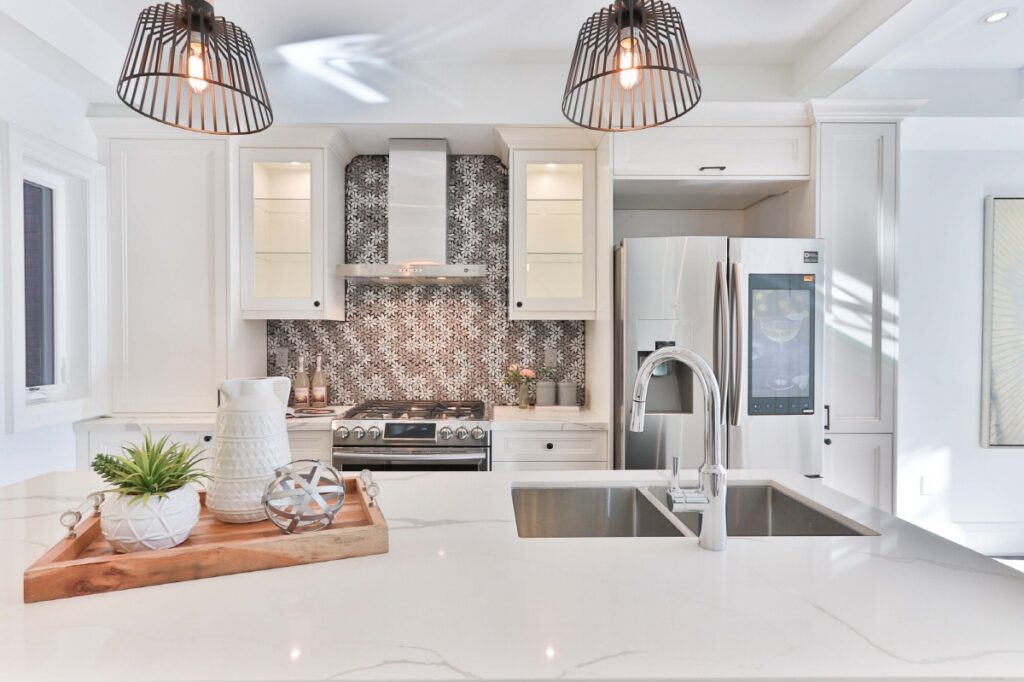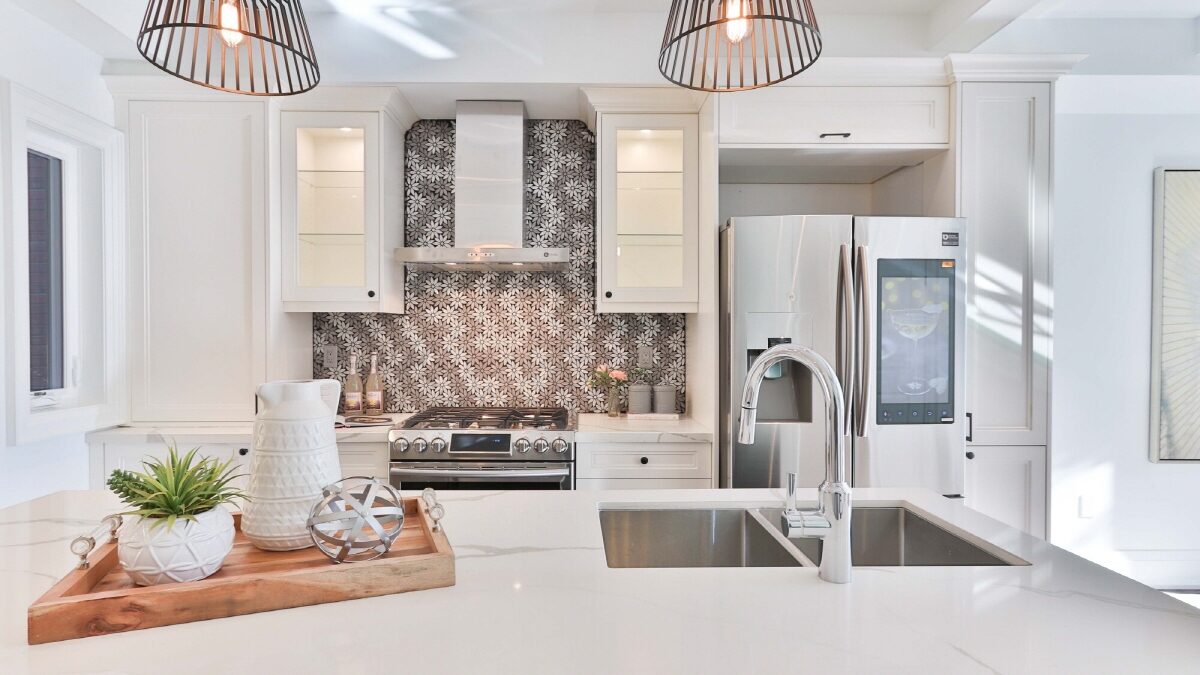
When picking out the best kitchen countertop material for your home, the options seem endless. Granite, marble, laminate, and more vie for your attention. But there’s one contender that’s been quietly making waves in the world of kitchen design – quartz.
What’s the deal with quartz? Read on to find out if you should use quartz for your kitchen renovation.
Advantages of Quartz
There are a lot of reasons you might want to invest in quartz for your kitchen.
Quartz is an extremely durable countertop material that can withstand daily wear and tear. It is particularly resistant to scratches, stains, and heat, making it a long-lasting choice for a kitchen countertop.
They’re non-porous kitchen counters, which means they don’t require sealing. You can clean these counters up easily with just soap and water, and they resist the growth of bacteria and mold.
Unlike natural kitchen countertop materials, quartz is an engineered stone with a consistent and uniform appearance. Meanwhile, granite or marble will have natural variations and imperfections you may want to avoid.
Better Design Options
In contrast to tile countertops, quartz eliminates the need for grout lines, which can be difficult to clean and maintain over time. Quartz is a more hygienic and low-maintenance choice.
These qualities can be appealing to those who prefer a more uniform look in their kitchen. It also matches a wide variety of different colors, so it can go with whatever floors and cabinets you choose for your kitchen renovation.
Custom Design
Quartz countertops can be custom-designed to fit your kitchen’s layout and requirements. You can choose the edge profile, sink cutouts, and other details to match your kitchen’s design. You can even reuse the leftover material.
Stronger
This material is strong and resistant to impact and chipping. It is a suitable choice for a kitchen countertop, where heavy pots, pans, and utensils are commonly used.
Disadvantages of Quartz
There are some disadvantages you might want to consider before making the jump to quartz.
Quartz countertops can be relatively expensive, especially compared to less durable materials like laminate or tile. The countertop price can vary depending on the brand, style, and complexity of the installation.
Quartz countertops are unsuitable for outdoor applications as exposure to UV rays can lead to discoloration and fading over time.
Stain Possibilities
While quartz is highly resistant to stains, it is not entirely stain-proof. Some highly acidic or strongly colored substances, if left on the surface for an extended period, can potentially cause discoloration or staining. Promptly cleaning up spills is essential to maintain the appearance of your quartz countertop.
Size and Seams
Since quartz slabs are typically manufactured in standard sizes, larger countertops may require seams or joints during installation. The visibility of seams depends on the quality of installation and the color and pattern of the quartz.
Using Quartz for Kitchen Interior: Now You Know
There’s a lot to consider when choosing quartz for your kitchen countertops. With this decision, you should be able to start making the right choice for your home.
Are you ready to get started? LX Hausys is internationally recognized for our design and technology. Contact us today to get started.

